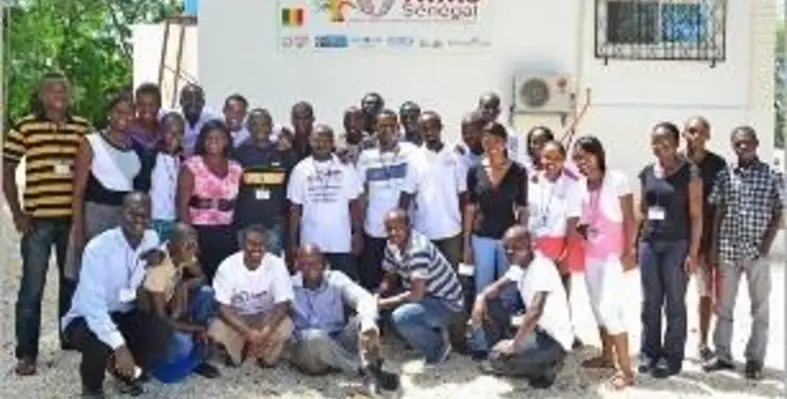Mathematics underpins science, technology and modern society – from cell phones to computers and satellites
Early in September 2011, the Government of Senegal led by His Excellency President Abdoulaye Wade and international partners opened a pan-African centre of excellence for Africa’s brightest math and science graduates in Mbour, 80 km south of Dakar.
AIMS-Senegal is the second centre in the African Institute for Mathematical Sciences (AIMS) network, joining AIMS-South Africa, which has operated in Cape Town since 2003.
The plan to expand AIMS across Africa is known as the AIMS-Next Einstein Initiative (AIMS-NEI). The goal is to rapidly and cost-effectively expand Africa’s scientific and technological capacity by providing advanced training to exceptional African students and enabling them to work effectively for the peaceful prosperity of the continent.
Pan-African Network
AIMS-NEI grew out of a wish first expressed by AIMS founder Professor Neil Turok, now Director of Canada’s Perimeter Institute for Theoretical Physics, that “the next Einstein be African”.
That wish has evolved into a plan to create a pan-African network of 15 AIMS centres over the next decade. AIMS-NEI is supported through public and private funding, including a $20 million investment from the Government of Canada, provided through the International Development Research Centre (IDRC). The Government of France is also a major partner in AIMS-Senegal, providing land for the current and future AIMS-Senegal facilities through the Institut de recherche pour le développement (IRD).
The first AIMS centre, in Cape Town, South Africa, has graduated 360 students from 32 African countries to date, of whom one-third are women. AIMS has become globally recognised as a centre of excellence for postgraduate education and research.
AIMS-Senegal’s first 36 students - hailing from 14 countries - have been selected from over 350 applicants to both centres.
“Were it not for AIMS, I think I would have stopped studying. Now I have opportunities I never imagined,” says Alexia Nomenjanahary, a Madagascan alumna of AIMS-South Africa, whose work in mathematical biology earned her a scholarship to attend a summer school at the University of Oxford. Alexia will soon join AIMS-Senegal as a teaching assistant to share her talents and help others realise their potential.
Funded education
Tidiane Ba, Minister of Higher Education and Research of Senegal says, “AIMS-Senegal will enable our most talented students, Senegalese and from across the continent, to receive a fully-funded world-class education here in Senegal. We are proud of AIMS-Senegal and support it strongly.”
“The opening of our second centre, AIMS-Senegal, is a major milestone towards our dream of a truly pan-African network of scientific centres where the continent’s bright minds can shine,” says Neil Turok. “As AIMS expands, thousands of talented Africans will acquire the skills they need to build Africa’s future economic, educational and technological self-sufficiency.”
AIMS catalyst
“Africa’s future lies in developing the minds of its brilliant young people,” says Rohinton Medhora, Vice-President of Programs at IDRC. “AIMS is a catalyst for that future and I am delighted to see it expand with the opening of AIMS-Senegal. This groundbreaking initiative complements IDRC’s longstanding support of outstanding scholars in developing countries and its tradition of fostering development through innovation, science, and technology.”
“AIMS-Senegal symbolises what IRD aims to implement: excellence in teaching and innovative research in a high-quality environment with engaged national and international partners,” says Michel Laurent, President of IRD. “All these conditions must be present to enable the emergence of teachers, researchers and the leaders and entrepreneurs of tomorrow.”












